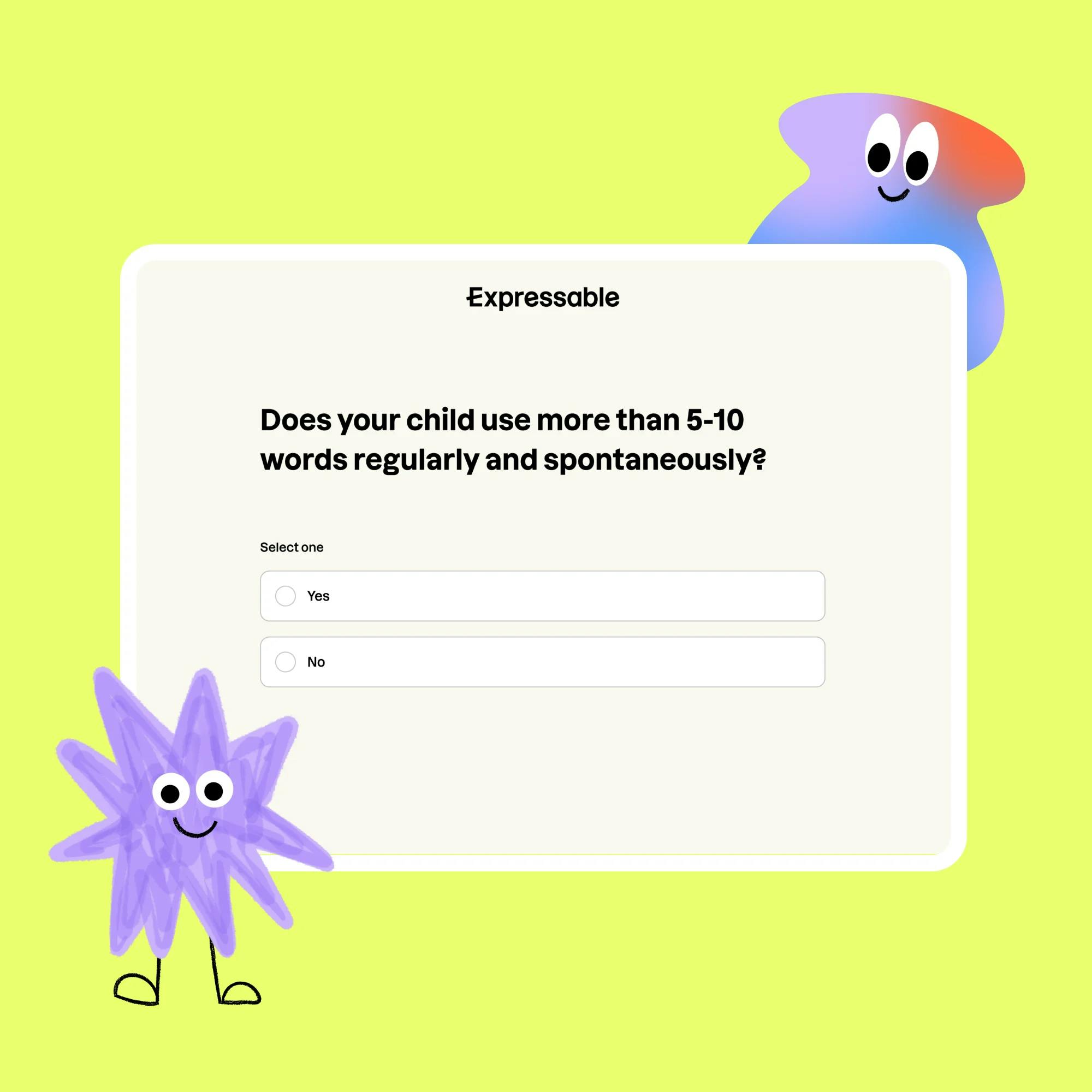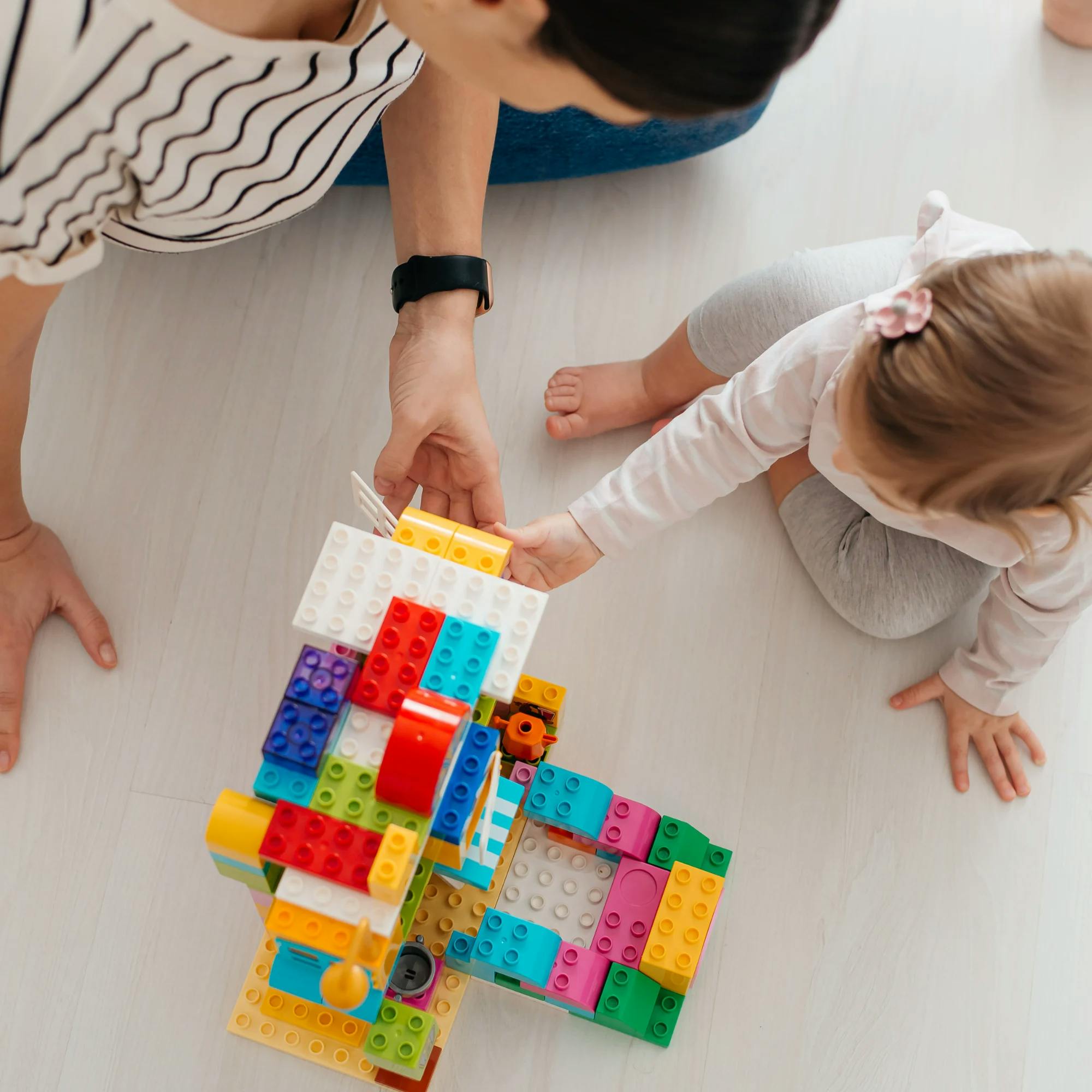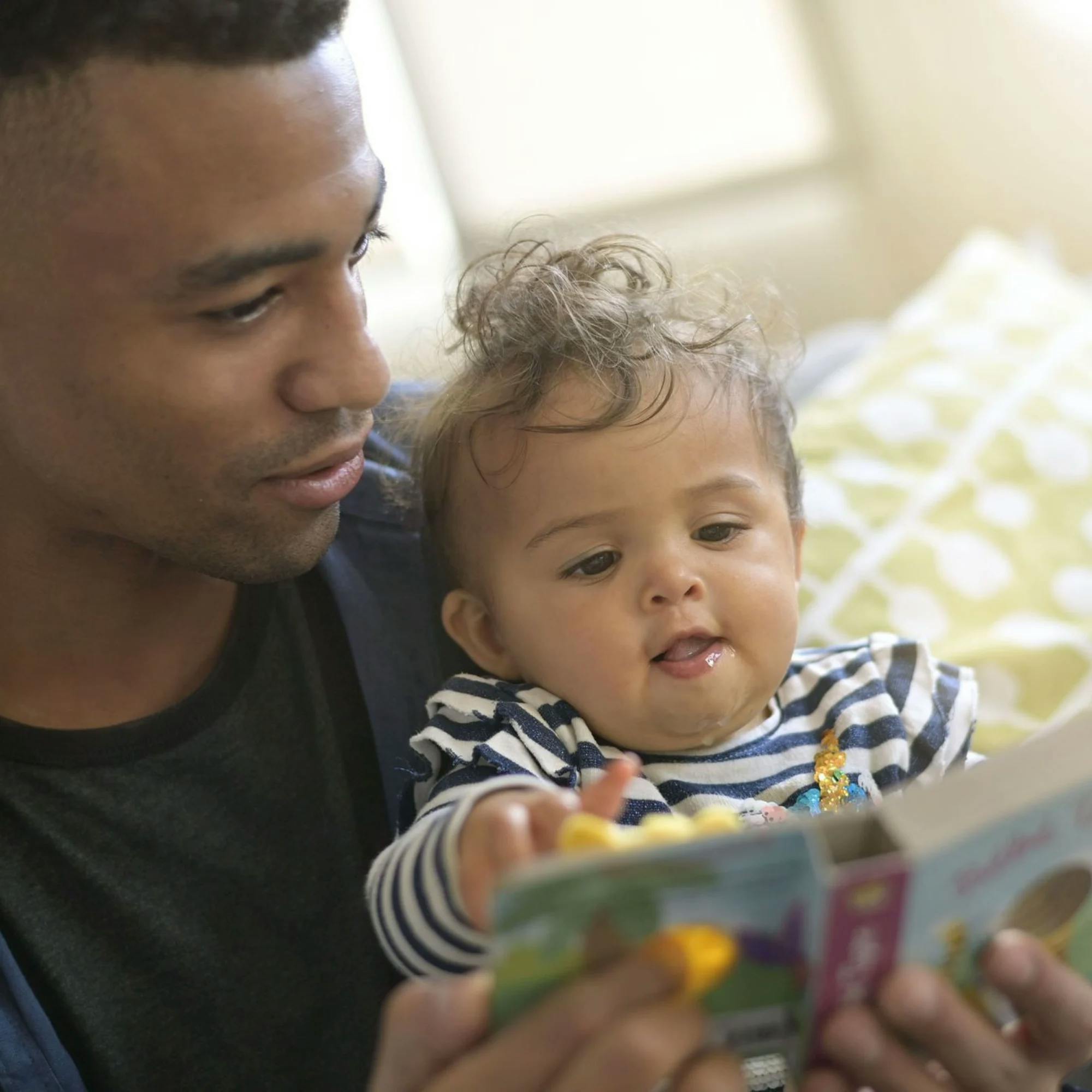
The Importance of Early Speech Intervention
 Leanne Sherred, M.S., CCC-SLP
Leanne Sherred, M.S., CCC-SLP
Every child develops on their own timeline. This is true with crawling, walking, potty training, and talking.
When it comes to speech, language, and communication, it’s common for children to need extra help meeting developmental milestones expected for their age. That’s why it’s so important for parents, caregivers, and teachers to know how to spot the early signs of a speech delay.
The earlier a child receives speech therapy intervention, the more quickly they can make progress. Early intervention can also decrease the severity of their speech delay over time.
Let's look at the early warning signs of a speech-language delay, the developmental milestones to watch for by age, and how to know if your toddler or preschooler needs speech therapy.


What are the signs of a speech delay?
While it may seem counterintuitive, you can actually spot many signs of a speech delay before a child even says their first words. Monitoring the milestones for nonverbal areas of communication can help reveal if a child is on track to begin talking on time. Each of these nonverbal examples is linked to a child’s eventual speech development:
Joint attention (a person’s ability to focus on a shared object or event with another person)
Eye contact
Play skills
The ability to vocalize back and forth through babbling or other sounds
You may be wondering when your child should be meeting these preverbal and verbal communication milestones. Check out the helpful milestone chart below, broken down by age. You may not have realized that all of these skills are tied to speech and language development!


Milestones for 3-6 months
Babbles and makes various sounds
Turns head toward a sound
Mouths toys
Smiles
Makes consistent eye contact by 6 months
Milestones for 6-9 months
Waves “bye-bye”
Begins to babble repeated sounds like “mama,” “dada,” or “baba”
Responds to simple activities like “peek-a-boo”


Milestones for 9-12 months
Gives objects upon request
Says “Mama” or “Dada” meaningfully
Begins imitating some animal sounds or environmental sounds
Begins to understand the word “no”
Says first meaningful word
Responds to name
Seeks attention from others
Joint attention should emerge around 9 months


Milestones for 12-18 months
Uses toys/objects appropriately (talks on toy phone, drives a toy car, etc.)
Follows one-step directions
Sits and pays attention to a book
Uses some words independently
Identifies body parts
Can play in a task with another person for 1-2 minutes
Uses two objects together in play
Milestones for 18-24 months
Points to common objects
Understands at least 50 words
Asks for “more”
Imitates words readily
Uses at least 5-10 words spontaneously
Milestones for 2-year-olds
Follows two-step directions
Asks for help or assistance
Uses two-word phrases
Plays independently and watches other children


Milestones for 3-year-olds
Identifies parts of an object (such as the wheel on a car)
Communicates about their daily experiences
Identifies complex body parts (wrist, knee, ankle, eyebrow, etc.)
Speaks in sentences
Speech is 80% intelligible, or able to be understood
Milestones for 4-year-olds
Answers “what,” “when,” and “where” questions
Plays appropriately with other kids
Understands concepts like “long” and “short” and other descriptive words

Speech skills build upon each other
When it comes to starting speech therapy, it's important to know that all speech skills build on each another in a sequential order, a bit like a staircase.
A child typically does not make it up each “stair” without first accomplishing the one before. Here’s a simple example: Before a child begins using sentences, they first need to use single words. If a child is 2 years old and isn't using single words, they are already about one year behind. If your child does not receive speech intervention for another year, and they haven’t caught up in this area on their own, then they will be about two years behind, since short sentences should begin around 2.5 to 3 years old.
You can save a lot of time, frustration, and anxiety if you receive professional intervention earlier rather than later, reducing the lag your child experiences in reaching these important milestones.


How speech and language relates to school success
One thing many people don’t realize is that strong speech and language skills are tied to success at school.
As a child begins grows familiar with words and understands more of the language they hear, they are also learning to listen to the similarities and differences between the structure and sounds of words. This is related to phonemic awareness skills. Early phonemic awareness (the recognition of speech sounds) is directly linked to early reading success. We want children to be able to identify words that rhyme, and even the sounds that make up words, as they get older and closer to reading age.
If a child struggles with recognizing sounds, this could be a sign that reading may be a challenge for them later on.


The benefits of working with a speech therapist
A licensed speech therapist is the best route to go when seeking help for your child’s language development. If your child has a speech therapist that sees them consistently, the therapist will understand your child’s communication strengths and weaknesses inside and out. That way they'll be able to set appropriate goals for your child.
At the end of each session, your speech therapist should tell you how your child is progressing. They should also provide home exercises and activities that target exactly what your child needs to practice.
Practice at home is extremely important. It helps your child maintain their progress between sessions. This way, your child isn’t just practicing their speech and language skills for 30-60 minutes a week, but around the clock, during their everyday life.
Speech therapy can help your child's social and emotional wellness
When children are clear and confident communicators, this increases their self-esteem. Think about it: What if you were unable to communicate your thoughts, needs, and wants to other people? What if others had to constantly say, “What?,” or ask you to repeat what you said? You'd likely feel quite frustrated. You might shy away from speaking to others, avoid social situations, and feel embarrassed or alone.
The same is true for kids. Strong communication skills help them express their basic needs and form relationships with family and other children. That’s why addressing these speech issues early on, before they worsen over time, is so important.


Talk with a speech therapist
If you're concerned about your child's speech, trust your instincts. Ask your child's pediatrician for a referral, or reach out directly to a speech therapist for a speech and language evaluation. Click here to find the right speech therapist for your child.
How Expressable Can Help
Concerned your child isn't reaching age-expected milestones? Looking for communication support from a professional? Expressable is a national online speech therapy practice serving children and adults. We treat all major areas of communication and feeding, offer flexible hours including evenings and weekends, and accept most major health insurance plans. We’re proud to have earned more than 3,000 5-star reviews from our clients (4.9/5 average).
Our therapy model is centered on parent and caregiver involvement. Research proves that empowering caregivers to participate in their loved one’s therapy leads to better outcomes. That’s why we combine live, 1-on-1 speech therapy with personalized education and home practice activities for faster progress.
Communication is more than words. It’s how we share how we feel and show who we are. We’re here to help you or your child do just that.








